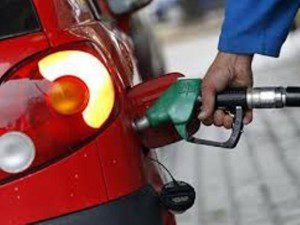National Issues
The Heavy Burden of Being a Nigerian: Surviving the Soaring Petrol Prices -By Omotola Ashaolu
Nigerians are renowned for their ability to bear even the harshest of times. Their tenacity and strong sense of community have seen them through numerous challenges in the past. However, the current situation poses an exceptional challenge, and the patience of the Nigerian people is being put to the test. Time will be the ultimate judge of their resilience and endurance.

Living in Nigeria has never been easy, but recent times have added an unprecedented weight to the already heavy burden carried by Nigerians. The country is grappling with the impact of skyrocketing petrol prices, causing a ripple effect that touches every aspect of life. The cost of transportation and food has surged, directly and indirectly affecting the lives of the people. Nigerians are known for their resilience in the face of adversity, but the question now is whether they can endure these hardships. Only time will reveal the answer.
As we observe the current situation, one of the most pressing concerns is the exorbitant price of petrol. In just a few weeks, Nigerians have witnessed an alarming increase from about 250 naira per liter to a staggering 600 naira per liter. This massive jump has created a domino effect, leading to a sharp increase in transportation costs, as most vehicles depend on petrol as their primary fuel source. Public transportation has become unaffordable for many, and commuting to work or school has become a major financial burden.
The impact of the petrol price surge goes beyond transportation, as it directly affects the cost of goods and services. Nigeria relies heavily on road transportation to move goods from one region to another, and the increased fuel costs are inevitably passed on to consumers. The cost of food has shot up, further straining the already stretched budgets of ordinary Nigerians. Basic necessities that were once affordable are now out of reach for many citizens, pushing them further into poverty and making it difficult to secure their families’ well-being.
When we look back at history, the actions taken during former President Jonathan’s administration offer a stark contrast to the current situation. In 2012, President Jonathan’s administration raised fuel prices from N67 to N97 per liter, sparking massive protests across the country. The Nigerian people, fueled by their frustration and a collective desire for change, united to shut down the entire system in a bid to force the government to reconsider its decision. This large-scale protest eventually led to a reduction in fuel prices to N87 per liter in January 2015.
However, the absence of similar protests in response to the recent petrol price hike is rather surprising. It could be attributed to several factors, including a sense of resignation and weariness from past experiences with protests. Additionally, political dynamics and a lack of effective mobilization might have hindered the organization of widespread demonstrations. Whatever the reasons, the absence of large-scale protests does not imply that Nigerians are not deeply affected by the current situation. Instead, it may indicate that they are enduring their struggles silently, hoping for better days to come.
Nigerians are renowned for their ability to bear even the harshest of times. Their tenacity and strong sense of community have seen them through numerous challenges in the past. However, the current situation poses an exceptional challenge, and the patience of the Nigerian people is being put to the test. Time will be the ultimate judge of their resilience and endurance.
The Nigerian government plays a crucial role in determining how this situation unfolds. As citizens struggle to cope with the soaring costs of living, it is imperative that the government takes proactive measures to alleviate their plight. Transparent communication with the public about the reasons behind the fuel price increase, as well as concrete steps to address the situation, could help rebuild trust and create an environment for constructive dialogue.
In the long term, the Nigerian government must prioritize investments in alternative energy sources and explore sustainable solutions to reduce the country’s dependence on petrol. Diversifying the economy and strengthening other sectors can create more job opportunities and improve the overall economic landscape, easing the burden on Nigerians.
In conclusion, the current economic challenges in Nigeria, particularly the surge in petrol prices, have created an incredibly difficult situation for the Nigerian people. The cost of transportation and food has escalated, putting immense strain on households and businesses alike. While Nigerians are known for their resilience, the severity of the situation raises concerns about how long they can endure these hardships. The government must step up its efforts to address the issue, and the Nigerian people must remain hopeful that better days lie ahead. Only time will reveal how this chapter in Nigeria’s history will unfold.










